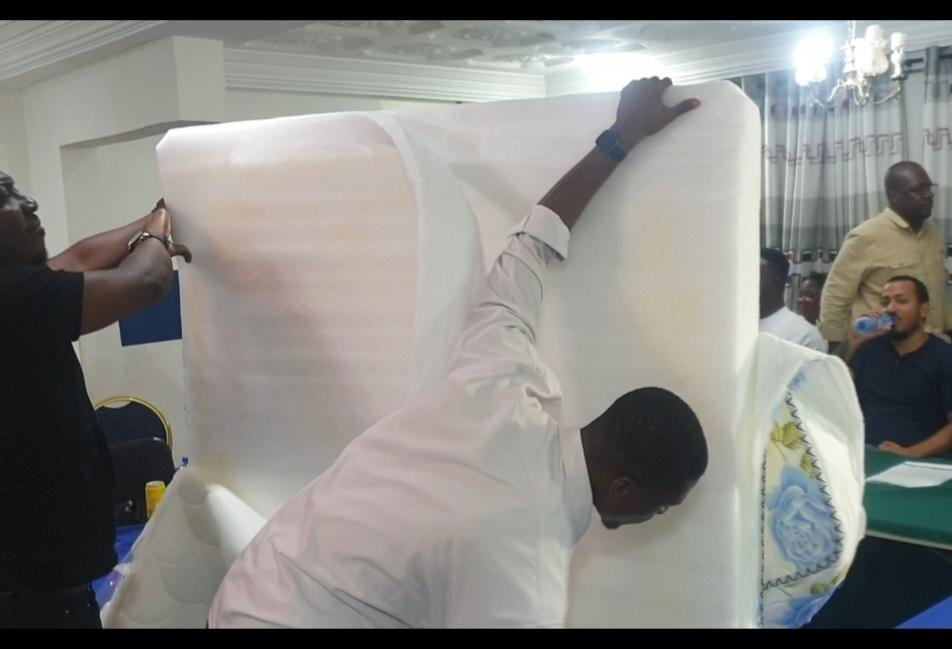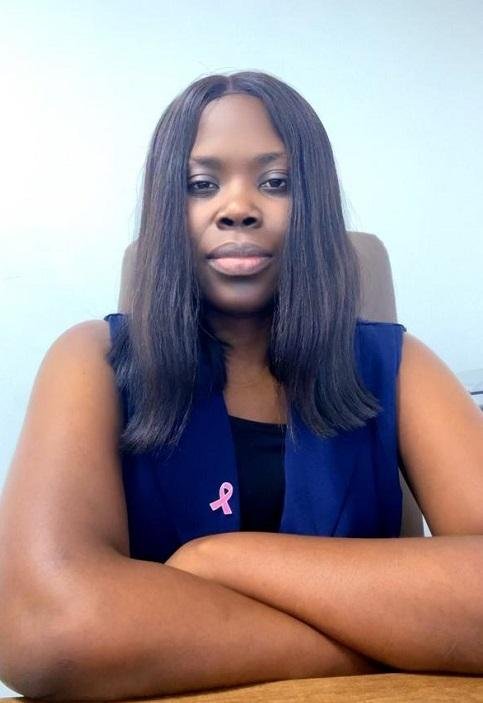News
Airbus Scandal: OSP found no evidence of bribery against former President Mahama

The Special Prosecutor, Kissi Agyebeng has cleared former President and flagbearer of the National Democratic Congress (NDC), John Dramani Mahama of bribery in the Airbus case.
According to the OSP investigation, “They found no evidence that former President Mahama was involved or played any role in the procurement and maintenance of the agency relationship between Airbus and Foster and his associates in respect of the purchase by the Government of Ghana of military transport aircraft from Airbus. And it appears to the OSP that the direct communications and meetings between former President Mahama and officials of Airbus to close the deal were actuated by good intentions on the part of the former.”
The OSP went further to say that “In the reckoning of former President Mahama, the decision to acquire the C295s was taken professionally by the Ghana Air Force and the Military Command, in general, in the best interest of Ghana, and in broad consultation with relevant state institutions including the Ministry of Finance, Ministry of Defence, and ultimately, Parliamentary approval. Therefore, any suggestion that he had corruptly or improperly influenced in any way the process of acquisition is simply fanciful and untrue.”
The report revealed that “ Former President Mahama opined that he believed the allegations of corruption levelled against him stemmed from the fact that Samuel Adam Foster, his brother, was involved in Airbus activities in Ghana and elsewhere in Africa at the time, and the suspicion was always that because of that familial relationship, Foster might have been a corrupting source for influencing Government’s decision to award the supply contract to Airbus. Former President Mahama stated that he had no hand whatsoever in the establishment of any relationship (formal or otherwise), which Foster had with Airbus.”
“Former President Mahama also admitted that he subsequently met one or other Airbus official in his office a couple of times in connection with the sale of the aircraft. He described the meetings as being invariably official engagements with one or other responsible state official present – the purpose of which was to discuss progress of the proposed sale of aircraft,” the OSP revealed.
The OSP’s investigation further disclosed that “Former President Mahama further stated he never received any bribe or inducement or gained any personal benefit or advantage from the procurement of the aircraft for Ghana. And that Airbus did not make any such allegation against him.”
“On his part, Samuel Adam Foster stated that he unequivocally denied the accusations against him that he was involved in any bribery activities with Ghanaian public officials or any individuals on behalf of Airbus. He recounted that from late 2009 to approximately 2015/16, he served legitimately as a consultant and business partner for Airbus, contributing across all its sectors, encompassing projects in Ghana, Uganda, Kenya, Nigeria, and Suriname as required by Airbus,” the report indicated.
By Edem Mensah-Tsotorme
Read full report by clicking on this link; osp.gov.gh/media/Resource
News
Watch your mattresses!…they can cause chronic back pain, other health disorders

Local mattress manufacturers have raised serious concerns over the influx of substandard mattresses, warning that these products pose significant health risks to consumers and threaten the sustainability of Ghana’s mattress industry.
At a press briefing held in Kumasi on Tuesday, manufacturers accused unregistered foreign entities, particularly Chinese firms, of flooding the market with cheap mattresses made from polystyrene.
Mr Yaw Ampem Darko, a spokesperson for the local manufacturers, warned that prolonged use of substandard mattresses, especially those made with polystyrene, could result in chronic back pain, musculoskeletal disorders, poor posture, and diminished sleep quality.
These health implications, they stressed, were not always immediately evident but accumulate over time, especially among vulnerable populations such as children and the elderly.
This material, typically used for packaging, is considered unsuitable and unsafe for bedding.
According to industry leaders, these sub-standard products have been circulating for at least five years, gaining traction among unsuspecting consumers due to their unusually low prices.
“These mattresses are being sold at suspiciously low prices, luring unsuspecting consumers who are unaware of the health dangers.”
“We are not just protecting our businesses; we are protecting Ghanaian lives. The government must act swiftly to stem this tide before more citizens fall victim to these dangerous products,” Mr Yaw Ampem Darko stated.
The Ghana Standards Authority (GSA) has acknowledged the issue and, in response, announced a nationwide enforcement campaign aimed at clamping down on the production, distribution, and sale of substandard mattresses.
The campaign, which was scheduled to take effect from September 30, 2025, was empowered by the GSA Act, 2022 (Act 1078), which authorises the Authority to seize and seal non-compliant products and impose sanctions on offenders.
In a statement signed by the Director General of the GSA, Professor George Agyei, the authority cited Sections 29 and 43 of the Act, reiterating that all mattresses sold in Ghana must meet established national standards or face confiscation.
The statement further emphasised that mattresses failing to meet these standards not only compromise sleep quality but also contribute to long-term health complications, including spinal and neck pain.
Despite the GSA’s commitment, manufacturers have expressed frustration over delays in implementation and called for stronger enforcement mechanisms.
They urged the GSA to work in close collaboration with the Customs Division of the Ghana Revenue Authority and national law enforcement agencies to identify and prosecute violators of Ghana’s quality standards.
Manufacturers are also appealing to consumers to remain vigilant and prioritise their health by verifying that any mattress they purchase bears the GSA certification mark.
Moreover, they caution the public against purchasing suspiciously cheap mattresses that lack proper labelling or identifiable branding, as these were often indicators of substandard or counterfeit products.
As the official enforcement deadline had expired with no show, the local producers insisted that much more than business interests were at stake.
They argued that without swift and sustained action, the health and safety of Ghanaian consumers would continue to be compromised.
“Public awareness, strict enforcement, and collaboration among regulatory bodies are essential if we are to protect the integrity of the local industry and the wellbeing of the Ghanaian people,” Mr Darko indicated.
From Kingsley E. Hope, Kumasi
Join our WhatsApp Channel now!
https://whatsapp.com/channel/0029VbBElzjInlqHhl1aTU27
News
Raissa Initiative demands harsher punishment for sexual abusers of girls

The Founder of the Raissa Child Protection Initiative, Ms Raissa Sambou, has urged authorities to impose severe punishment on individuals, including teachers and guardians, who sexually abuse young girls.
Speaking in an interview to mark this year’s International Day of the Girl Child (October 11), Ms Sambou condemned the increasing cases of sexual exploitation involving minors, describing such acts as “heartless, criminal, and a total betrayal of trust.”
She noted that those entrusted with the care and education of children must not be the same people who violate them, stressing that “anyone found guilty of abusing a girl child must face the full rigours of the law without leniency.”
The International Day of the Girl Child is observed annually to promote the rights of girls, empower them to reach their full potential, and draw attention to the challenges they face worldwide.
Ms Sambou lamented that poverty continues to push many young girls into vulnerable situations, exposing them to exploitation.
She expressed concern that some headmasters, teachers, and community members who should protect girls rather take advantage of them.
“This must stop immediately. The safety of every girl must never be compromised,” she said, urging the public to report all forms of abuse to the appropriate authorities and called for swift action by law enforcement agencies against perpetrators.
Addressing girls directly, Ms Sambou encouraged them to take their education seriously and to believe in their potential.
“It is possible to be young and responsible. Your future is bright, protect it, believe in it, and never let anyone dim your light,” she advised.
She further urged girls to choose their friends wisely, stay disciplined, and speak up if anyone makes sexual advances toward them.
Ms Sambou concluded with a rallying call for collective action, saying “speak up, protect them, and empower them. Together, we can end the sexual exploitation of girls.”
By Esinam Jemima Kuatsinu
Join our WhatsApp Channel now!
https://whatsapp.com/channel/0029VbBElzjInlqHhl1aTU27














